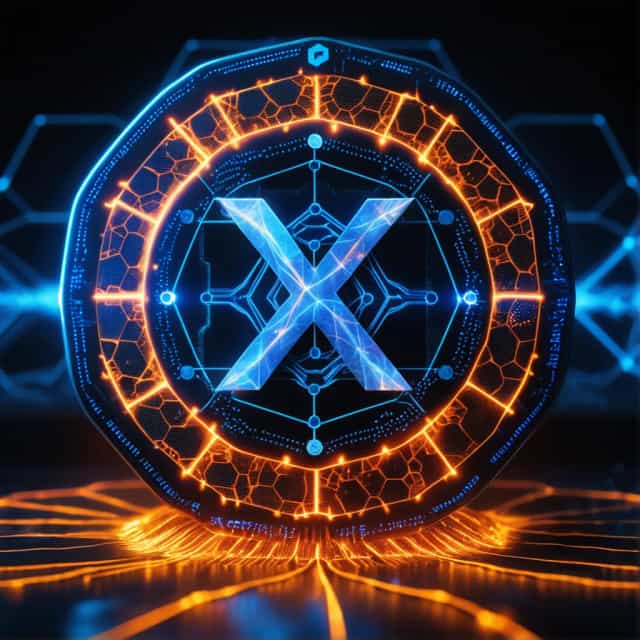![[Block Festa 2025] “7,000 Trillion Won in Idle Capital”…KernelDAO Unveils Digital Asset Credit System](/_next/image?url=https%3A%2F%2Fwww.blockmedia.co.kr%2Fwp-content%2Fuploads%2F2025%2F09%2F20250926-124522.png%3Fformat%3Dwebp%26width%3D600&w=1200&q=70)
Image source: Block Media
How Digital Assets Are Transforming Global Payments and Revolutionizing Cross-Border Transactions
Global finance continues to grapple with persistent inefficiencies. High fees, lengthy processing times, and poorly utilized capital plague international payments and trade finance. The urgent necessity for modernization in this space was a central focus of Amitesh Gajala, co-founder of KernelDAO, during his keynote at the "Block Festa 2025" event in Seoul on October 26. Gajala championed digital assets as the transformative technology capable of addressing these long-standing challenges and ushering in a new era of efficiency in cross-border payments.
The Inefficiencies of Traditional Financial Systems
Current financial infrastructures rely heavily on outdated processes that impose unnecessary barriers to effective global commerce. Gajala highlighted, “The existing system for international remittances averages five days for transfers and incurs fees between 2% and 6%. Worse still, approximately $5 trillion—roughly KRW 7,000 trillion—remains locked as idle capital in pre-settlement funding, severely hampering global capital flows.”
The Problem of Pre-Settlement Funding
At the heart of these inefficiencies lies the concept of pre-settlement funding. This practice requires banks to pre-deposit vast amounts of money into intermediary or correspondent accounts in foreign financial institutions to enable cross-border money transfers. These funds essentially remain immobilized, representing trillions of dollars that could otherwise be deployed within the economy.
Gajala underscored the need for a new approach, arguing that digital assets could radically overhaul this antiquated system. “With digital assets, payments and credit mechanisms can be seamlessly integrated and programmable, enabling instantaneous transfers, significantly reduced transaction costs, and enhanced capital utilization,” he explained.
Kred and KUSD: Digital Innovations for Credit Efficiency
KernelDAO has developed a groundbreaking initiative to tackle these inefficiencies head-on. The project, named "Kred," establishes a digital asset-driven credit network designed for the modern era. Kred leverages blockchain-based technologies to ensure that credit can move with the same speed and automation as global information flows.
Central to the Kred ecosystem is the stablecoin "KUSD." Unlike traditional fiat-backed stablecoins, KUSD redefines the concept of value transfer. It is pegged to short-term real-world assets and not only maintains its value but actively generates financial returns as it moves through the system.
How KUSD Works in Practice
The mechanism behind KUSD is both simple and innovative. Liquidity providers deposit KUSD within the Kred platform. These funds are subsequently lent to pre-approved borrowers, creating a flow that supports decentralized finance (DeFi) and centralized finance (CeFi) ecosystems. During this movement, liquidity providers are rewarded with returns, effectively transforming KUSD into an asset that earns even as it circulates.
This dynamic model addresses two major pain points: the need for immediate credit availability and the inefficiency of locked idle capital. By generating returns during circulation, KUSD diminishes the waste associated with static reserves while also reducing transaction costs.
Real-World Applications of KUSD
KUSD’s utility extends across a broad spectrum of industries. Gajala emphasized its relevance in sectors like remittances, payroll, fintech payments, and global trade finance, areas notorious for inefficiencies.
“KUSD is far more than a mere store of value,” Gajala explained. “Unlike traditional currencies, it perpetuates the flow of new credit with every transaction, significantly reducing idle capital while simultaneously improving the efficiency of the financial system.”
This real-world applicability has made KernelDAO a major player in the fast-growing decentralized finance ecosystem. Over 350,000 users are already leveraging the platform’s solutions, which are linked to more than 10 Layer 2 blockchain protocols and over 150 DeFi projects. KernelDAO’s total value locked (TVL) stands at over $2.4 billion (approximately KRW 3,365.5 billion), reflecting the platform’s expanding footprint in the global marketplace.
Reshaping the Future of Finance
Looking ahead, KernelDAO aims to redefine the global financial landscape by combining instant, cost-efficient payments with capital-utilizing stablecoins. Kred and KUSD form the backbone of its vision, offering programmable payment systems that seamlessly link to real-world asset flows within decentralized finance environments.
“Our mission is clear: to shape the future of finance by enabling programmable, real-time payments that maximize capital efficiency. Stablecoins like KUSD will play a pivotal role in reshaping global trade, remittances, and financial services as we know them,” Gajala stated.
As the demand for seamless cross-border transactions continues to grow, the transformative potential of digital assets like Kred and KUSD cannot be overstated. These innovations signal a fundamental shift toward a more efficient and inclusive global financial system, promising to unlock new opportunities for businesses and individuals worldwide.










